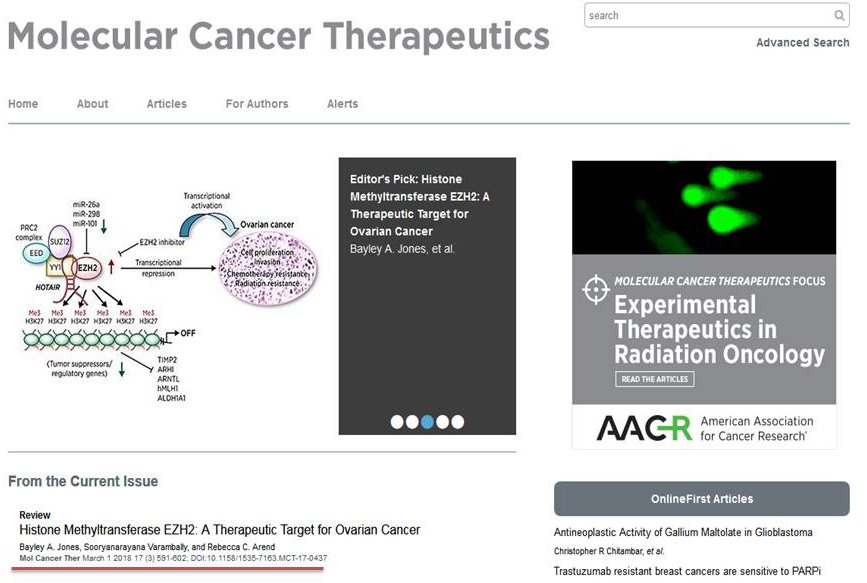A review on Histone methyltransferase EZH2 in ovarian cancer by Soory Varambally, Ph.D., Director, Integrative Translational Oncologic Pathology Research and Associate Professor, Department of Pathology, is the editors' pick in the March issue of Molecular Cancer Therapeutics, an American Association for Cancer Research journal.

The article, written by Varabally along with Rebecca Arend, MD, Assistant Professor, Obstetrics and Gynecology and Bayley Jones, UAB School of Medicine, is entitled, "Histone methyltransferase EZH2: A Therapeutic Target for Ovarian Cancer." It reviews, "what is currently known about the role of EZH2 in various cancers and specifically its role in ovarian cancer."
From the article: "Ovarian cancer is the fifth leading cause of cancer-related deaths in females in the United States. There were an estimated 22,440 new cases and 14,080 deaths due to ovarian cancer in 2017. Most patients present with advanced-stage disease, revealing the urgent need for new therapeutic strategies targeting pathways of tumorigenesis and chemotherapy resistance. While multiple genomic changes contribute to the progression of this aggressive disease, it has become increasingly evident that epigenetic events play a pivotal role in ovarian cancer development. One of the well-studied epigenetic modifiers, the histone methyltransferase EZH2, is a member of polycomb repressive complex 2 (PRC2) and is commonly involved in transcriptional repression. EZH2 is the enzymatic catalytic subunit of the PRC2 complex that can alter gene expression by trimethylating lysine 27 on histone 3 (H3K27). In ovarian cancer, EZH2 is commonly overexpressed and therefore potentially serves as an effective therapeutic target. Multiple small-molecule inhibitors are being developed to target EZH2, which are now in clinical trials. Thus, in this review, we highlight the progress made in EZH2-related research in ovarian cancer and discuss the potential utility of targeting EZH2 with available small-molecule inhibitors for ovarian cancer."